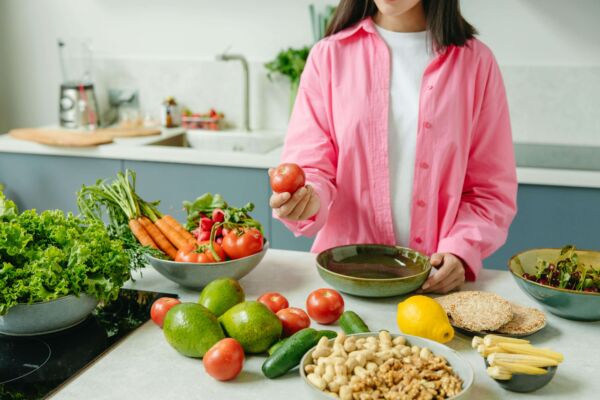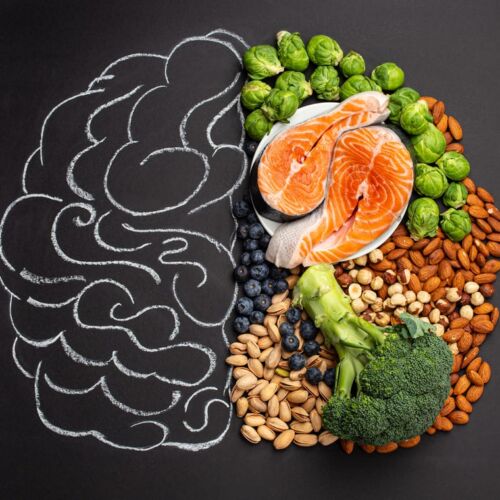Eating Well for Kidney Health
by Sara Prato MS, RDN, CSR

Eating a balanced diet is important for everyone, but it’s especially essential if you have Chronic Kidney Disease (CKD). Nutrition advice for CKD has changed over the years, and with so much outdated and new information available, it can feel overwhelming. One website might say one thing, while another says the opposite. It’s tough to know what to trust.
The good news is that you can take charge of your kidney health with the right nutrition. Research shows that a diet rich in plants, whole grains, and healthy fats can help to slow the progression of CKD and keep you feeling great.
Since nutritional needs are different for everyone, it’s best to work with a kidney dietitian for personalized guidance. They can help you stay updated on the latest scientific advice, create a meal plan that simplifies healthy eating, and ensure that your nutritional choices support better kidney health
Below is a list of tips to help you get started on eating healthy for your kidneys:
- Know Your Numbers
Understanding your kidney health numbers, like your Estimated Glomerular Filtration Rate (eGFR) and creatinine (Cr), is important. These numbers show how well your kidneys are working. Regular check-ups and lab tests help you track your kidney health. It’s also important to monitor your potassium and phosphorus levels to make informed food choices. Knowing these numbers empowers you to make better choices for your kidneys. - Limit Your Sodium Intake
Try to eat less than 2,000 mg of sodium each day. When shopping, read nutrition labels to find lower-sodium options. Skip the salt when cooking and avoid adding it to dishes at the table. Instead, enhance the flavor of your meals with herbs, spices, lemons, limes, or fruit vinegar. - Enjoy Whole Grains
Whole grains are packed with fiber, vitamins, minerals, and antioxidants that support your health. They do contain potassium and phosphorus, but your body absorbs less of these nutrients from plant-based sources. Try whole-grain pasta, cereal, bread, or brown rice. Start with grains you know, and then explore new ones for variety. - Eat Plenty of Fruits and Vegetables
Fruits and vegetables are essential for kidney health. Enjoy a variety of them in your meals and snacks. The only fruit you should avoid with CKD is star fruit, as it can harm your kidneys. If your potassium levels are high or low, you may need to adjust the types and amounts of fruits and vegetables you eat. A colorful mix of fruits and vegetables can help support your kidney health. - Eat More Plant Proteins
Eating more plant-based protein and less animal protein can help protect your kidneys. Add plant-based foods like beans, nuts, tofu, and whole grains to your meals. You can also enjoy smaller portions of animal protein less often. Your protein needs depend on your kidney function, body size, and unique needs. A kidney dietitian can guide you in finding the right amount for you. - Choose Healthy Fats for Cooking
Healthy oils and fats support your heart and kidneys. Use olive oil, avocado oil, or nut oil for cooking. You can also make flavorful salad dressings and marinades with these oils. They’re healthy and delicious. - Stay Hydrated
Drinking enough water is key for kidney health. Water is the best choice for your kidneys. Try to avoid sugary drinks and those with artificial sweeteners, as they can be hard on your kidneys. Stay hydrated by drinking plenty of water.
Eating well is essential for keeping your kidneys healthy. Living a healthy lifestyle and making good food choices can make a big difference. Managing kidney health can feel challenging, but with a plan and small steps, you can thrive with CKD. Acknowledge where you are now and think about where you want to be. Set small goals to help you succeed.
Change takes time. Take one step at a time, and remember, small steps can lead to big changes. If you’re unsure where to begin, consider talking to a kidney dietitian. They can help you create a plan that works for you.
About the Author
Sara Prato, MS, RDN, CSR, is a Registered Dietitian Nutritionist and Specialist in Renal Nutrition. She owns The CKD Dietitian and helps people with Chronic Kidney Disease (CKD) build healthy habits to improve their kidney health and overall well-being. Her goal is to empower those feeling overwhelmed by their diagnosis with the knowledge and tools to thrive with CKD.
Images: From Unsplash and Pexels
The Site is not intended to be a substitute for professional advice. Under no circumstances will we be liable for any loss or damage caused by your reliance on information obtained through the Site. You are responsible for evaluating the accuracy, completeness, or usefulness of any information, opinion, advice, or other content available through the Site. Please seek the advice of professionals, as appropriate, regarding the evaluation of any specific information, opinion, advice, or other content. Never disregard professional advice, including medical advice, or delay in seeking it because of something you have read on this Site.



